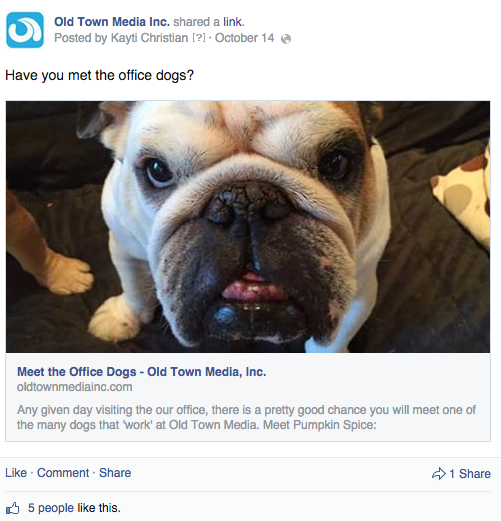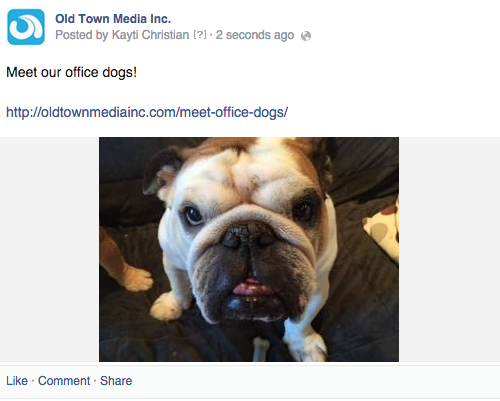In recent months, Facebook has announced more changes to its algorithm. If you manage a Facebook brand or business page, here are the changes you will want to be aware of:
1. According to Information Week, “The newest changes to Facebook’s algorithm will prioritize posts based on whether the topic is trending and when — instead of how many — people like, share, or comment on it…
…If a friend or a Page you are connected to posts something that others are talking about, for example, Facebook will now show you that post near the top your news feed, the social network said.”
Facebook is telling businesses to watch engagement metrics, claiming that Pages may see high engagement for timely posts that then drops off once the topic is no longer trending.
Solution: Use hashtags and post “as it happens.” For example, #ThrowbackThursday is a trending hashtag every Thursday and could contribute to higher reach and engagement.
2. “One of the biggest algorithm changes that will likely affect your business page is ‘like-bating,’ writes AL.com. This type of post specifically asks users to like, comment or share a post to get more exposure.”
Solution: While Facebook does say that its algorithm will only detect Pages that use ‘like-baiting’ frequently, we encourage Page managers to keep posts as genuine as possible by only asking for engagement when you know users will respond.
3. Additionally, Facebook will now penalize posts with ‘click-baiting’ headlines.
Similar to ‘like baiting,’ “‘click-baiting’ is when a publisher’s post doesn’t give viewers all the information and encourages them to click the post to find out more information, writes AL.com. When these posts receive a lot of clicks, they are shown more frequently on news feeds. Facebook has adjusted its algorithm to detect these posts in two ways:
- If a post has a high click rate but users come back to Facebook immediately.
- The ratio of clicks to commenting and share engagement.
Both of these examples will help Facebook determine if people find the information useful. If users spend more time off Facebook after clicking the article or if they engage in the post, this shows Facebook the article has more credibility.”
Solution: Only provide click through content that will be appealing to the user and relevant to the post. Do not ‘link stuff’ posts just to get users to the website, but include links that the user will actually want to see.
4. Speaking of links, Facebook’s new algorithm will now favor its own link sharing format.
Instead of sharing a link with an image, let Facebook generate the image for the post. The reasoning behind this change is because the link is more noticeable and it provides a description of the link’s landing page. It also functions better on phones and tablets.
(see examples below)
This:

Not This:

